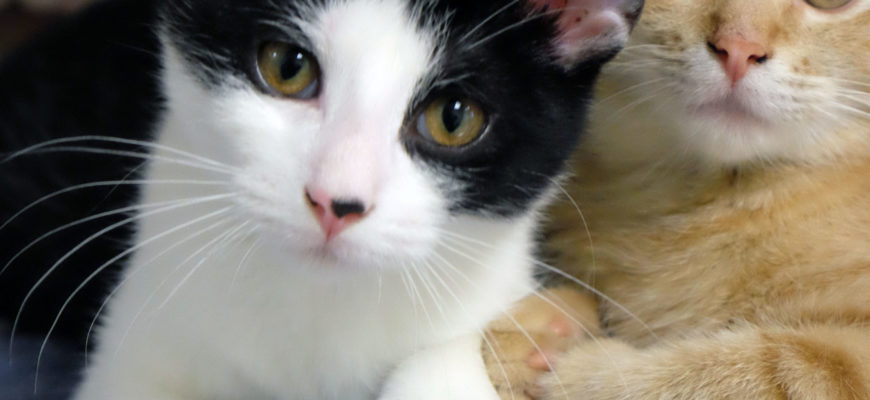Thinking of adding a cat or kitten to your feline crew at home? Here are some things to consider:
- Energy Level! – Adopting a kitten or cat with a similar energy level to the resident cat(s) is generally the best fit.
- Have a cat who lived with cats previously but it’s been a long time? Pick a cat with a positive known history with other cats. Cats don’t automatically like other cats just because they liked another cat at one time; the introductions still need to be slow and managed.
- Adopting a kitten for an older cat who’s lost a companion or to liven them up? Beware: This often backfires, unfortunately. Older or elderly cats almost always just want tons of love from their people; adding a kitten to the home can send them into depression without consistent, focused management of the relationship. Again, focus on energy levels. After all, there’s really nothing better than two elderly cats napping on your lap!
- Trying to remedy a behavior problem? Adding a kitten to a home to remedy a behavior problem with your current cat can really amplify the concerning behavior that you’re trying to fix. Most often, finding outlets for that frustration and destructive behavior will be much more successful for you. Adding a kitten can sometimes create a whirlwind of frustration…. Please, be cautious if you’re thinking of taking this path.
All of these warnings aside… adopting two kittens at once can be so wonderful, as can be adding an adult cat to your home. Just remember to think about who your resident cat is and with whom they’d like to share their person. Take into consideration how much time and space you have for introductions and managing relationships as well, and you’ll be on the right path for picking the best mate for your feline friend!







